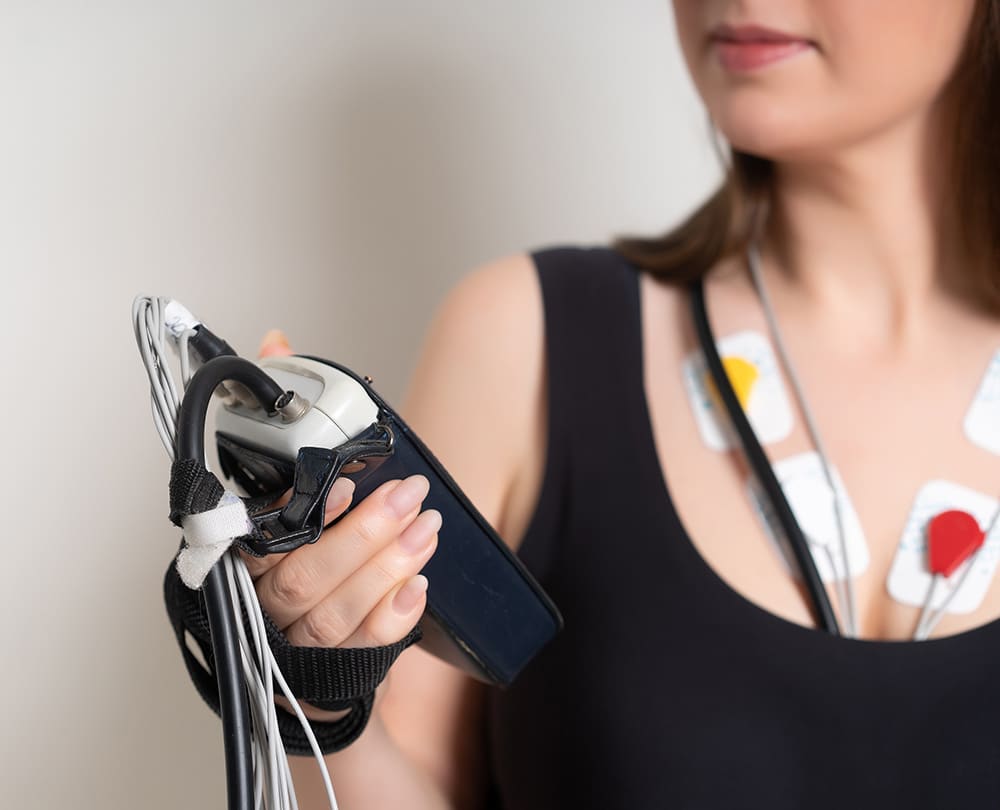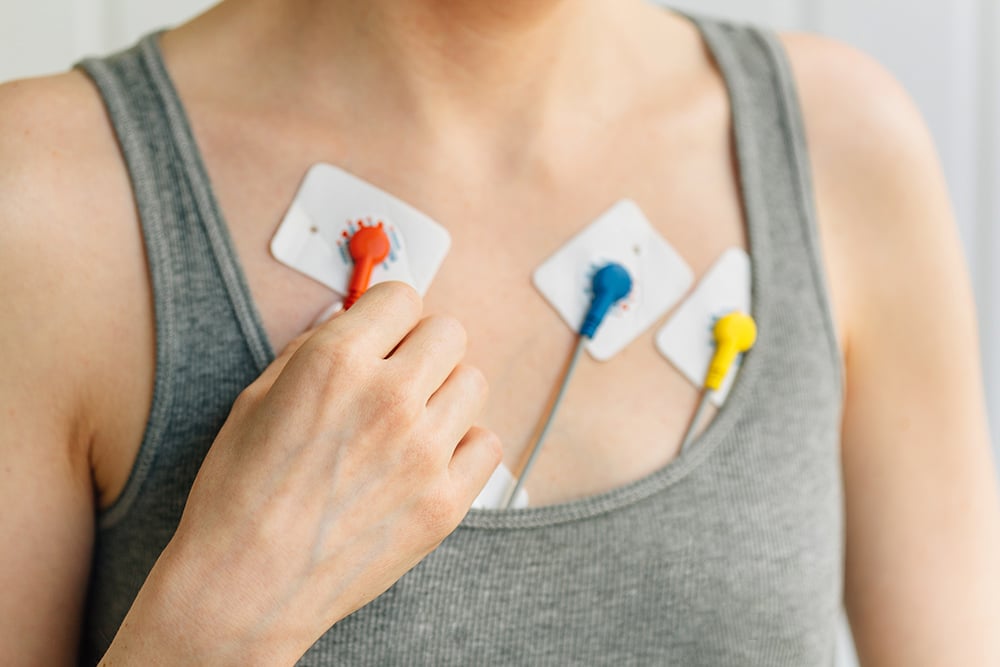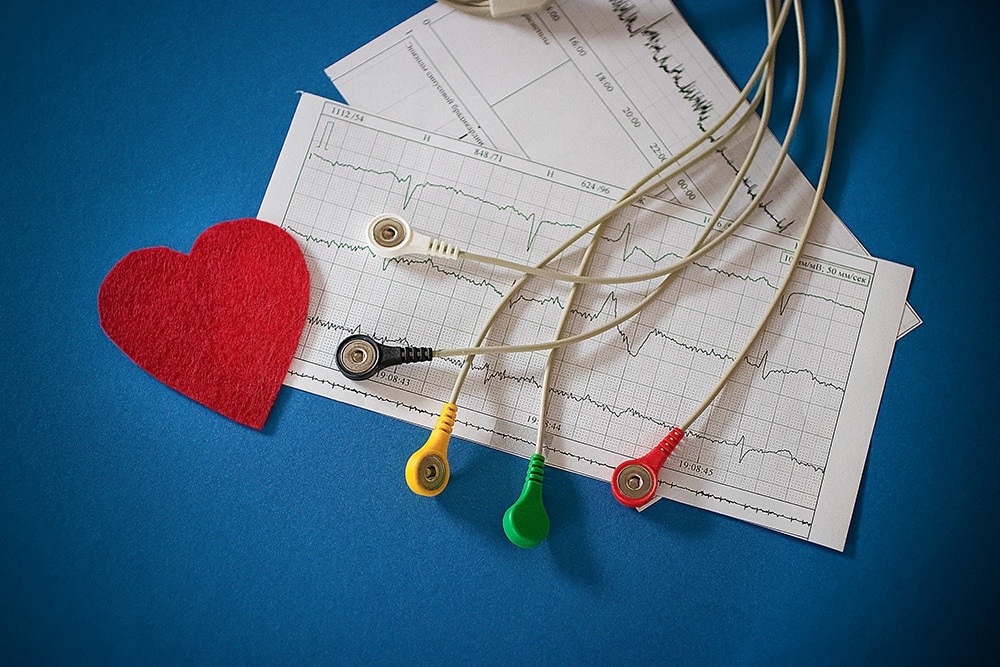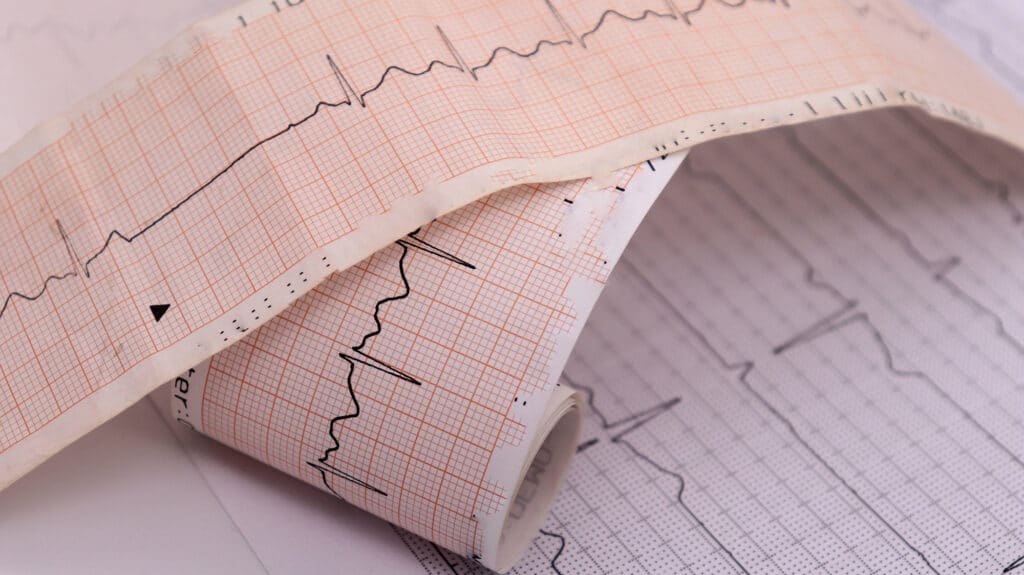Cardiac event monitor for your heart health with Melbourne Heart Care
Melbourne Heart Care offers leading cardiac care and arrhythmia management. If you (or your doctor) suspect an abnormal heart rhythm, event loop monitoring helps gain crucial insights into your heart’s electrical activity to form an accurate diagnosis and management plan.
Contact Melbourne Heart Care and make an appointment with one of our cardiologists today.
What is cardiac event monitoring?
A cardiac event monitor is a small wearable device that records your heart’s electrical activity when a patient triggers an “event” (which is when symptoms occur). Two primary types of event monitors exist:
- Symptom event monitor
- Loop memory monitor
While both capture data during activation, memory looping monitors additionally store information from a few minutes before activation, offering a comprehensive view of your heart’s activity before, during, and after symptoms are experienced.
Unlike continuous holter monitors, event monitors only activate when you trigger them, allowing real-time analysis of your heart’s electrical behaviour during symptoms. These monitors, along with ECGs, aid in diagnosing various abnormal heart rhythms and medical conditions.

Cardiac event holter monitoring is a painless test that allows healthcare professionals to analyse your heart over a longer period to capture transient arrhythmias.
What are the indications for event loop monitoring?

Cardiac event recorders can provide valuable information about other symptoms such as unexplained fainting or dizziness, chest tightness and palpitations.
A cardiac event monitor may be needed if you have risk factors for a cardiac event or when experiencing symptoms of an abnormal heart rhythm. These symptoms may be occurring too infrequently for a standard 24-hour holter monitor to capture, so a cardiac holter monitor is used for extended heart rhythm monitoring over 1 to 2 weeks.
The main indications for holter monitors are for transient arrhythmia monitoring, such as atrial fibrillation or palpitations. You may experience:
- Weakness
- Fatigue
- Dizziness or lightheadedness
- Episodes of fainting or near-fainting
- Rapid heartbeat or a sensation of pounding in the chest
- Shortness of breath
- Chest pain, tightness or pressure (please note that if you experience these symptoms you may be having a heart attack and should call 000 immediately)
- Irregular heartbeats
- Alternating slow and fast heartbeats
- Sweating
- In extreme cases, loss of consciousness and sudden cardiac arrest
How does cardiac event monitoring work?
A cardiac event monitor captures the electrical activity of your heart through sensors placed on your chest. These sensors transmit the data to the holter monitor, which records and stores the information. This information is then sent to your healthcare provider for analysis of any abnormal events, accurate diagnosis and a management plan.
What is the procedure for event loop monitoring?
We will attach your event holter monitor at Melbourne Heart Care at a scheduled time. Before your appointment, we will provide you with advice on how to prepare (please see below).
During the appointment, we will attach small electrodes (sensors) about the size of a dollar coin to your chest. These will detect your heart rhythm and are connected to the holder monitor which is about the size of a deck of cards. Once everything is connected and programmed, we will provide further instructions for the week ahead.
How to prepare for your cardiac event monitoring
There are only a few things you will need to do to prepare for your cardiac event monitor:
- Make sure you shower or bathe on the day of your appointment
- Don’t apply any creams or lotions to your chest
- Shave the hair off your chest
- Attend the appointment in a loose top or shirt
Wearing your cardiac holter monitor
You can’t get the holter monitor wet, so won’t be able to shower or bathe whilst wearing it. You will be provided with extra electrodes plus instructions on how to replace them so you can bathe. Whilst wearing your event holter monitor you will need to:
- Keep it on during all your usual activities, even when sleeping (unless told otherwise)
- Press the button when you experience any symptoms and the cardiac event monitor will start recording
- Keep a diary of your daily activities, including the time you did them and any symptoms you experienced
What are the risks or complications of wearing a cardiac event monitor?
Wearing a cardiac holter monitor is quite safe, with minimal risks or complications. Some people may experience skin irritation from the sticky patches on the electrodes and tape. Please discuss any skin sensitivities with us before your appointment.

A cardiologist or healthcare professional will attach sticky electrodes to your chest and provide instructions on how to wear the event recorder for a week.
What are the benefits and limitations of cardiac event recorders?
There are many benefits of event loop monitoring:
- Diagnosis: A cardiac holter monitor provides valuable data for diagnosing intermittent or infrequent arrhythmias that may go undetected with a standard ECG.
- Customisation: Event monitoring is tailored to your specific symptoms and can be initiated as you feel symptoms to capture an irregular heart rhythm.
- Real-time monitoring: Some devices offer wireless transmission, allowing for real-time remote monitoring by your healthcare provider.
However, there are also some limitations of event loop monitoring:
- Dependence on patient triggering: The device records only when a patient feels symptoms and presses the button, so accurate data collection relies on patients triggering the event monitor.
- No continuous monitoring: Unlike a continuous 24-hour holter monitor, a cardiac event monitor is not designed for continuous monitoring therefore it may miss an irregular heartbeat if not triggered by the patient.

As with any procedure, there are benefits and limitations. It is best to discuss the need for event loop monitoring with your cardiologist or general practitioner.
Understanding the results of your heart rhythm monitoring
Once your monitoring period is complete, your healthcare provider will review the collected data to determine if there were any abnormal rhythm events. They will then discuss the results with you and recommend further evaluation or treatment if necessary. More testing may be required such as an exercise stress test, electrophysiology studies or scans.
Cardiac event monitors are a valuable tool in diagnosing and managing heart rhythm disorders, helping you and your healthcare team make informed decisions about your heart condition.
Why choose Melbourne Heart Care for your cardiac event monitor?
Choosing Melbourne Heart Care for cardiac event monitoring means placing your trust in a team that prioritises your well-being. We are dedicated to helping you achieve optimal heart health, offering expert care, personalised attention, and the latest technology to ensure the most accurate diagnosis and treatment.
Contact us today to schedule an appointment and take a proactive step toward a healthier heart. Your heart health is our priority, and we are here to support you every step of the way.

